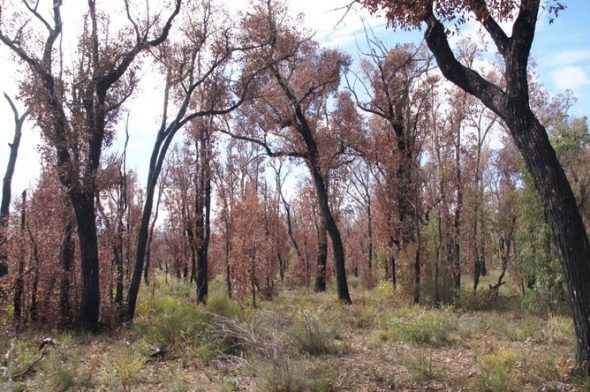Changes to the carbon credit system will allow external stakeholders to come up with innovative ways to reduce emissions, but critics say this could undermine the system.
A new proponent-led process will allow projects and methods to be developed outside of government.
“From today, interested parties can submit an expression of interest to develop a new method,” Climate Change Minister Chris Bowen said at a carbon farming forum on Tuesday.
“This is a big step forward,” said Minister Bowen.
“I have asked the Emissions Reduction Guarantee Committee to look at these expressions of interest and provide advice on what ideas should be further developed for method development.”
The change was among recommendations made in 2023 by an independent review of the carbon credit program, led by Australia’s former chief scientist Ian Chubb.
Carbon credits are a tradable financial product used to encourage reduction, with projects that include planting native species.
But former Emissions Reduction Assurance Committee chairman Andrew Macintosh of the Australian National University said the changes were “back to the future”.
“Until 2014, third parties could submit method proposals,” says Professor Macintosh.
“It’s basically back to the future…this is literally just a restart of the old process.”
Professor Macintosh, a critic of the carbon credit programme, said that while there were some positives to the idea, the change, if poorly implemented, could exacerbate any integrity issues.
“It was scrapped because the department’s resources were being siphoned off by third parties,” he said.
“People submit whatever, there was a camel proposal, a desert orchard and all kinds of weird and crazy things.”
John Connor of industry body Carbon Market Institute said the plan would work differently than in 2014.
“We now have over a decade of experience with what works and what doesn’t,” Connor said.
“Until now, the government has had sole responsibility for prioritizing and developing new methods, but this has proven to be too slow.”
Farmers have cautiously welcomed the news, but argue that integrity remains key.
“It can be a good move to get stakeholders, including farmers, to suggest that carbon credit methods are available, as long as the carbon reduction is real,” said Peter Holding of Farmers for Climate Action.
“It is a good move to take politics out of the process,” Holding said.
A spokeswoman for Minister Bowen said the changes deliver on the recommendations of the Chubb review.
“The process announced today will help manage stakeholder and government resources to bring forward and test the best ideas,” the spokeswoman said.
Government data shows more than 1850 projects have been registered under Australia’s carbon credit program, up from 1200 two years ago.
Source: MONKEY


